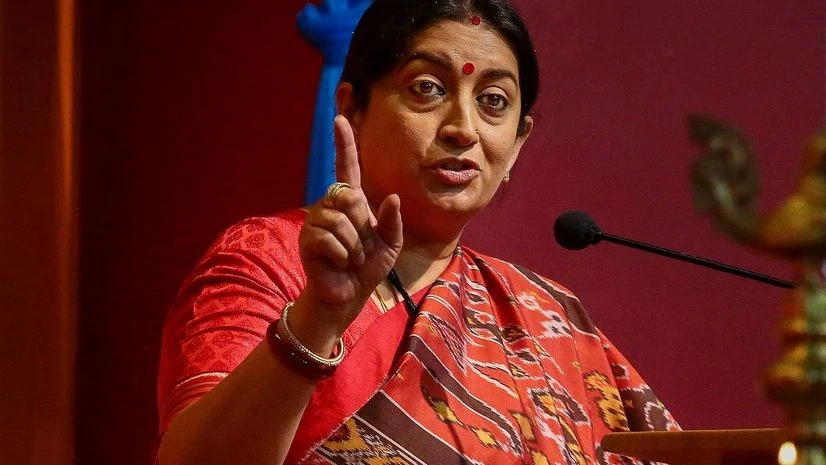Union Women and Child Development (WCD) Minister Smriti Irani on Wednesday said that menstruation is not a "handicap" and that it shouldn't warrant a specific policy for "paid leave". Irani was responding to a question asked by Rashtriya Janata Dal (RJD) member in the upper house Manoj Kumar Jha on the menstrual hygiene policy in the country.
"As a menstruating woman, menstruation and the menstruation cycle is not a handicap, it's a natural part of women's life journey…We should not propose issues where women are denied equal opportunities just because somebody who does not menstruate has a particular viewpoint towards menstruation," Irani said.
Last week, responding to a question asked by Congress MP Shashi Tharoor, Irani had informed the Lok Sabha that there is "no proposal under the consideration of the government to make provision for paid menstrual leave mandatory for all workplaces".
In a written response submitted in the upper house on Wednesday, Irani said that "a small proportion of women/ girls suffer from severe dysmenorrhea or similar complaints; and most of these cases are manageable by medication."
"However, the issue of menstruation and its associated activities are surrounded by silence, often treated with shame and associated with social taboos that restrict mobility, freedom and access to normal activities for menstruating persons, and many times leads to their harassment and social exclusion. It becomes even more sensitive, when a girl/ menstruating person is unaware of the changes that she undergoes emotionally and physically, while facing her menstrual cycle for the first time," she added.
Notably, in October, the government released a draft Menstrual Hygiene Policy advocating for leave provisions for menstruating individuals in workplaces.
More From This Section
"Educational Institutions and workplaces to promote inclusivity, recognise the diverse needs of the workforce and foster an environment that supports the well-being and productivity of all individuals. Provisions like flexible working arrangements, such as work from home or support leave, to accommodate the specific needs of individuals during menstruation. It is important to emphasise that such arrangements should be available to all, to prevent perpetuating stigmas or assumptions about productivity based on menstrual cycles," the draft stated.
Jha also expressed concern about potential risks associated with sanitary napkins due to certain substances used in their production and inquired about regulations governing these products.
In response, Irani highlighted the availability of sanitary napkins at affordable prices through the Jan Aushadi Kendra, saying, "through 10,000 Jan Aushadi Kendra, sanitary napkins are available at Rs 1, and there has been no complaint."
On the disposal of sanitary products, Irani said, "In 2014 after Modi Sarkar, the Jal Shakti ministry started with national and state protocols for the management of sanitary products."
In her written response, the ministry also laid down various schemes initiated by the Centre for menstrual hygiene. It further stated that the government has multiple initiatives promoting menstrual hygiene among adolescent girls aged 10-19 years.
"The scheme for promotion of menstrual hygiene, backed by the National Health Mission [NHM], aims to raise awareness and is implemented through state programme implementation plans. Additionally, under the Swachh Bharat Abhiyan, the Ministry of Drinking Water and Sanitation has developed national guidelines on menstrual hygiene management for rural areas," Irani added.

)
